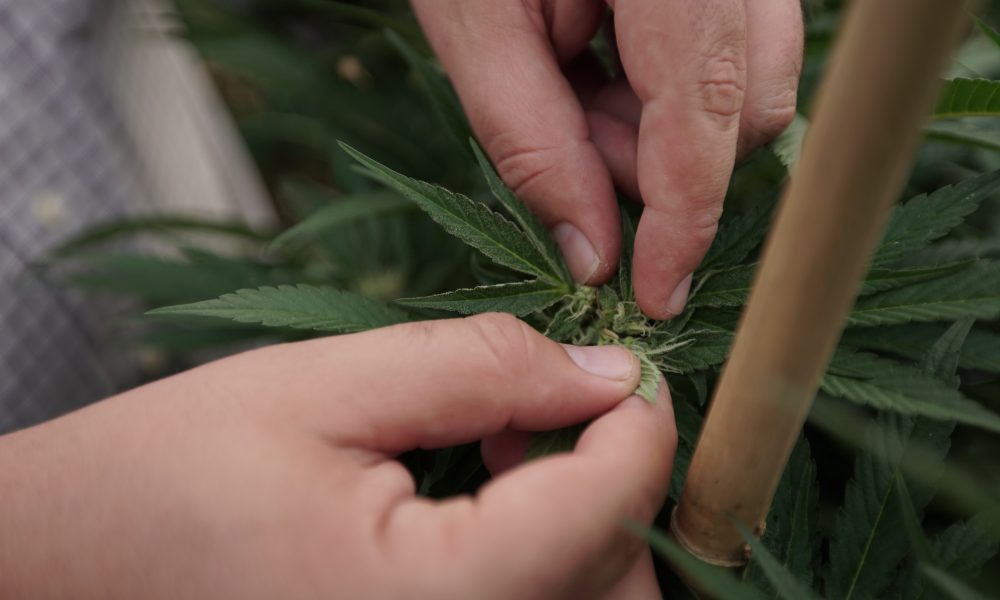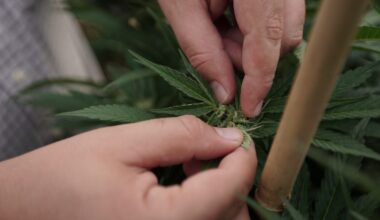California officials have awarded more than $1.7 million in grants help promote sustainable marijuana cultivation practices and assist growers with obtaining their annual licenses.
This is the first round of Qualified Cultivator Grant Program funding that’s being made available through the California Department of Fish and Wildlife’s (CDFW) Cannabis Restoration Grant Program (CRGP). Grants are awarded to eligible non-profits, government entities and tribes, which can then distribute funds to individual grower applicants.
A total of $6 million will be allotted through the program, which was first announced in August 2021 and will remain open for applications through April 2023.
CDFW Awards First Funds From Qualified Cultivator Grant Program
— California Department of Fish and Wildlife (@CaliforniaDFW) July 8, 2022
Beside assisting cultivators in processing and paying for annual licensing, the grants are meant to support environmental sustainability in the cannabis sector. For example, they can be used to enhance water conservation and fund restoration projects.
For this first round, the cultivation certification organization Sun+Earth received $395,643 for planning purposes and to expand their operations, with a focus on land restoration and conservation on marijuana farms across the state.
The Mendocino County Resource Conservation District was awarded $1,388,181 for water conservation projects in the South Fork Eel River Watershed. The money is being specifically allocated to install three rainwater collection systems, upgrade irrigation infrastructure, manage invasive species and bring in native, “pollinator-friendly plants.”
“These are well-conceived and timely planning projects that will result in lasting benefits to fish and wildlife resources and the habitats they depend upon for survival,” Acting Cannabis Program Director Sarah Paulson said in a press release. “Supporting these entities will help preserve California’s natural resources and pave the way for future cannabis farmers in the regulated market.”
The qualified cultivator program involves three steps: consultation to develop licensing and conservation proposals, pre-application to determine eligibility and then the full application.
California has put significant resources into supporting the state’s marijuana program, with certain initiatives being funded by tax revenue from cannabis sales.
For example, Gov. Gavin Newsom (D) signed a wide-ranging bill this month to restructure the state’s marijuana market, including by eliminating a cannabis cultivation tax, in an effort to provide industry relief and further curtail the illicit market. AB 195 builds upon an amended budget proposal that the governor unveiled in May.
—
Marijuana Moment is tracking more than 1,500 cannabis, psychedelics and drug policy bills in state legislatures and Congress this year. Patreon supporters pledging at least $25/month get access to our interactive maps, charts and hearing calendar so they don’t miss any developments.![]()
Learn more about our marijuana bill tracker and become a supporter on Patreon to get access.
—
The key provisions going into effect eliminate the marijuana cultivation tax and shift the point of collection and remittance for the separate 15 percent excise tax on cannabis sales from the distribution to retail level. Additionally, there will be no increase in the excise tax for at least three years under the proposal, which is expected to be signed by the governor and then take effect immediately.
Also, the new law includes a $20 million one-time grant program to support the development and implementation of local retail licensing efforts. That’s an important component that’s meant to help reduce the cannabis policy gap throughout California, where more than half of the state’s cities and counties do not allow any type of cannabis licensees to operate in their area.
Relatedly, state officials launched a new resource in May, providing people with an interactive map showing where marijuana businesses are permitted—and where they are blocked from opening—throughout the state.
Last week, regulators also announced last week that they are soliciting input on proposed rules to standardize cannabis testing methods in the state—an effort that they hope will stop marijuana businesses from “laboratory shopping” to find facilities that are more likely to show higher THC concentrations that they can then boast for their products.
Meanwhile, California officials are distributing another round of community reinvestment grants totaling $35.5 million with tax revenue generated from recreational marijuana sales.
The Governor’s Office of Business and Economic Development (GO-Biz) announced last month that they’ve awarded 78 grants to organizations throughout the state that will support economic and social development in communities disproportionately impacted by the war on drugs.
The amount of funding and number of recipients increased from last year’s levels, when the state awarded about $29 million in grants to 58 nonprofit organizations through the CalCRG program.
California has taken in nearly $4 billion in marijuana tax revenue since the state’s adult-use market launched in 2018, the Department of Tax and Fee Administration (CDTFA) reported late last month. And for the first quarter of 2022, the state saw about $294 million in cannabis revenue generated from the excise, cultivation and sales tax on marijuana.
The state collected about $817 million in adult-use marijuana tax revenue during the last fiscal year. That represented 55 percent more cannabis earnings for state coffers than was generated in the 2020-2021 period.
California officials also announced in January that the state had awarded $100 million in funding to help develop local marijuana markets, in part by getting cannabis businesses fully licensed.
Photo courtesy of Chris Wallis // Side Pocket Images.
Medical Disclaimer:
The information provided in these blog posts is intended for general informational and educational purposes only. It is not a substitute for professional medical advice, diagnosis, or treatment. Always seek the advice of your physician or other qualified healthcare provider with any questions you may have regarding a medical condition. The use of any information provided in these blog posts is solely at your own risk. The authors and the website do not recommend or endorse any specific products, treatments, or procedures mentioned. Reliance on any information in these blog posts is solely at your own discretion.







